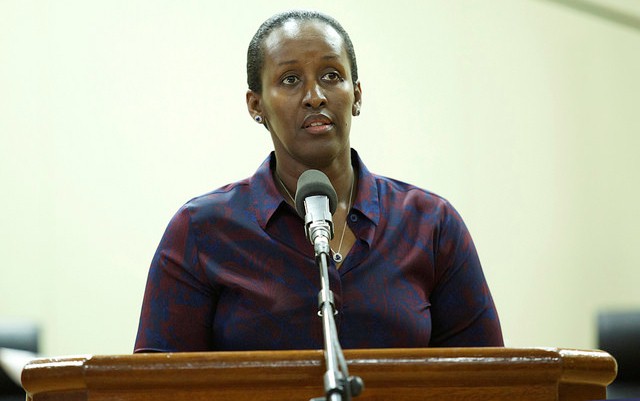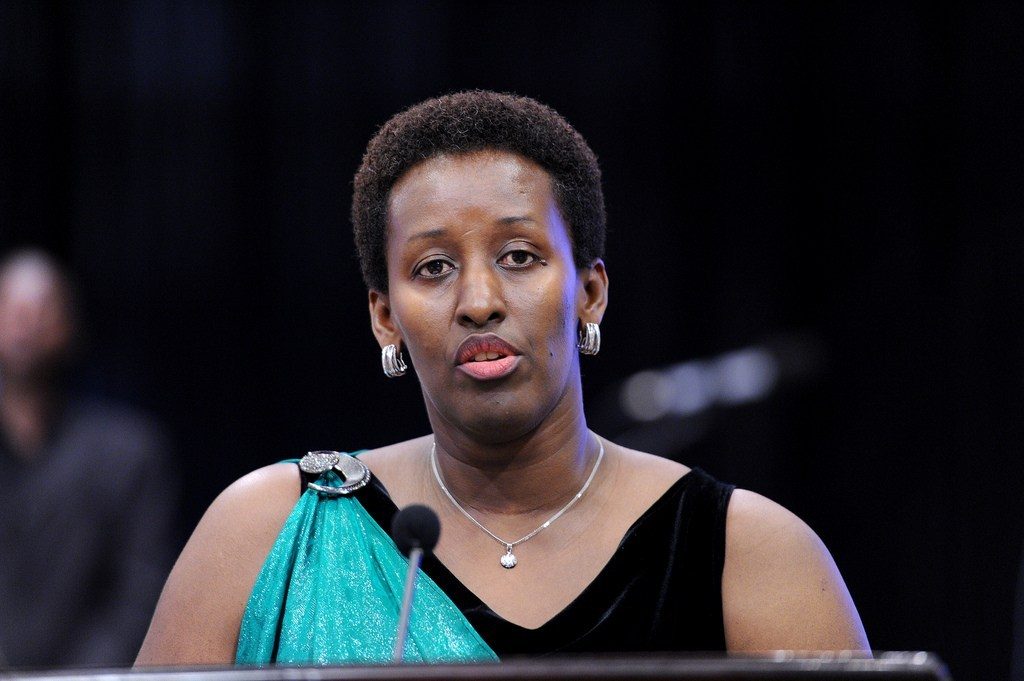First Lady Jeannette Kagame has insisted that there’s a need to support women businesses, saying their contribution to the development of the country in the last 25 years has been unprecedented.
She also indicated that the past twenty five years since the Genocide against the Tutsi, women have played a crucial role in promoting their personal growth and the growth of their families.
“Women also played a core role in the rebuilding of the nation, promoting the unity of Rwandans as well as contributing to the security and development in general,” Mrs. Kagame noted.
Rwanda has a significant number of women entrepreneurs, who now play a major role in the development of the country especially through their active involvement in the country’s private sector.
“As figures show, women have a role to play to increase the economic growth and development of the country. Their businesses contribute 30 per cent to the GDP,” she said.
She pointed out that research shows that women in the private sector across the world have seven things in common. Among others, having a resolute but well defined goal, instilling self-belief, accepting failure enthusiastically, and reducing any association with negative people.
First Lady Jeannette Kagame has insisted that there was a need to support women businesses, saying their contribution to the development of the country in the last 25 years has been unprecedented.

She also indicated that the past twenty five years since the Genocide against the Tutsi, women have played a crucial role in promoting their personal growth and the growth of their families.
“Women also played a core role in the rebuilding of the nation, promoting the unity of Rwandans as well as contributing to the security and development in general,” Mrs. Kagame noted.
Rwanda has a significant number of women entrepreneurs, who now play a major role in the development of the country especially through their active involvement in the country’s private sector.
“As figures show, women have a role to play to increase the economic growth and development of the country. Their businesses contribute 30 per cent to the GDP,” she said.
She pointed out that research shows that women in the private sector across the world have seven things in common. Among others, having a resolute but well defined goal, instilling self-belief, accepting failure enthusiastically, and reducing any association with negative people
Indeed data collected by the World Bank in ten African countries, including Rwanda, indicates that on average, male-owned enterprises have six times more capital than female-owned enterprises.
The fact that women have less access to assets affects their ability to obtain medium-sized loans and, in turn, impacts the growth of their enterprises.
The organisation is currently comprised of 5,000 businesswomen working in diverse economic sectors like tourism, agriculture, manufacturing, and information and communication technologies, among others.
Chantal Nyirandama, one of the members and a businesswoman who runs Nice Garden Training centre that provides tourism and hospitality services in Gicumbi district, told Sunday Times that women have made major steps but that there are challenges to deal with going forward.
“Previously women running businesses wasn’t ideal in the society. That has changed considerably. What we need now is to empower those in informal sectors through training and market access because that is the biggest challenge,” she said.
The World Bank suggests giving women more control over assets through, for example, the granting of joint property rights (as is the case in Rwanda) or by eliminating the need for collateral can go along in allowing women to do business.
In Rwanda, more women currently own more land (24 per cent) than their male (14 per cent) counterparts, according to the recent Gender Equality index, and land is considered the main asset for production and investment

